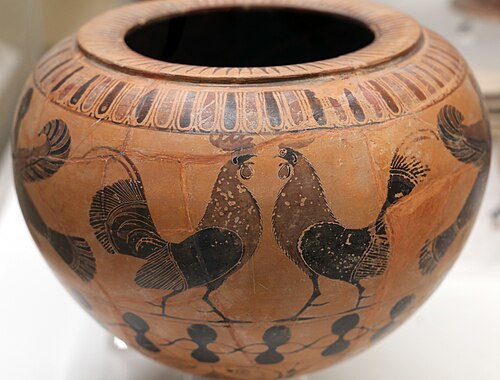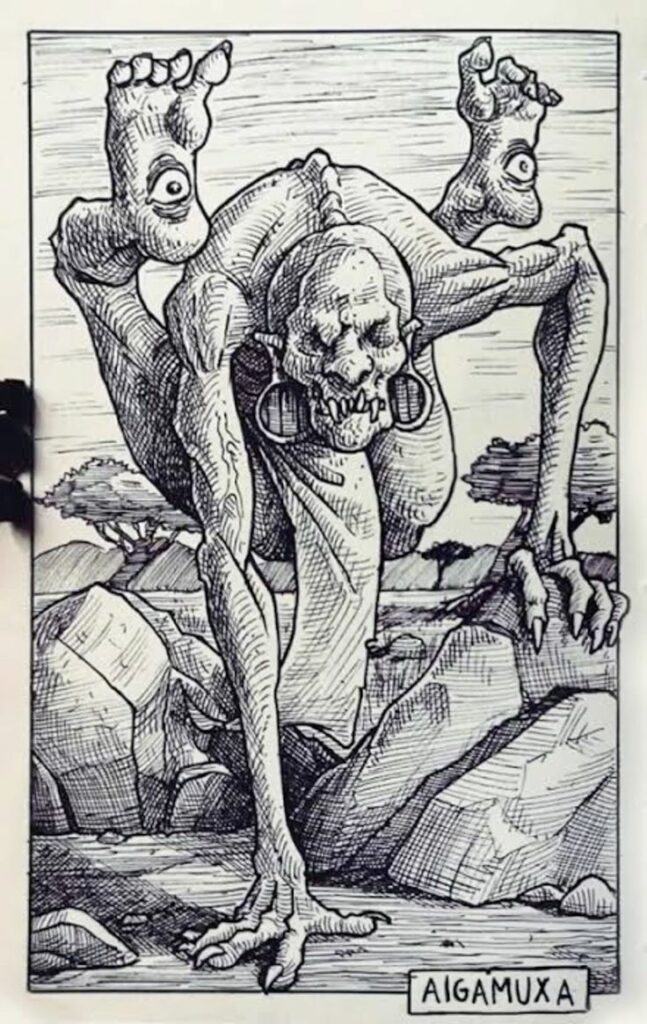Alectryon

Alectryon (Ancient Greek: ἀλεκτρυών, Alektruṓn, meaning "rooster") is a figure from Greek mythology. He was a young soldier entrusted by Ares, the god of war, to stand guard outside his door while Ares secretly engaged in a love affair with Aphrodite, the goddess of love. Ares feared discovery, particularly by Helios, the all-seeing sun god, who might reveal the affair to Hephaestus, Aphrodite’s husband and the god of blacksmithing.
However, Alectryon failed in his duty. He fell asleep while on watch, and at dawn, Helios caught sight of the lovers and promptly informed Hephaestus. In retaliation, Hephaestus ensnared Ares and Aphrodite in a net, publicly shaming them before the other gods. Enraged by Alectryon’s negligence, Ares transformed the young man into a rooster. As a symbol of eternal vigilance and remorse, the rooster has since been said to crow at the break of dawn, warning of the sun’s arrival—just as Alectryon should have done.
This story serves as an aetiological myth, explaining the origin of the rooster and its dawn crowing. The myth does not appear in Homer, who first told the tale of Ares and Aphrodite’s affair in the Odyssey. The addition of Alectryon as a character was introduced later by other authors.
According to Lucian, Alectryon was described as an adolescent beloved by Ares, a companion in revelry and love. Fearing exposure by Helios, Ares ordered Alectryon to stand watch during his trysts with Aphrodite. But when Alectryon fell asleep and Helios spotted the affair, the sun god alerted Hephaestus, who ensnared the couple in a cunning trap, humiliating them in front of Olympus. Ares, furious at Alectryon’s failure, cursed him to live as a rooster, forever announcing the sunrise—a futile attempt at redemption that never earned forgiveness.
Pausanias later wrote that the rooster became a sacred animal to Helios, as it always heralds the sun’s rise with its cry.
Some scholars speculate that the words Alectryon and Halcyon may derive from Halaka, an ancient Persian name for the sun. In the Vendidad, a Zoroastrian text, a sacred bird named Parodars, known to men as kahrkatak, raises its voice at dawn. Similarly, in the Bundahishn, the sun is referred to as Halaka—the cock who drives away darkness and evil with his crowing.


